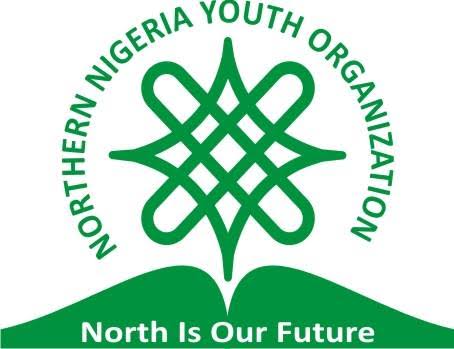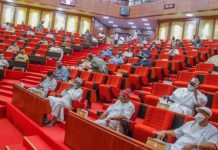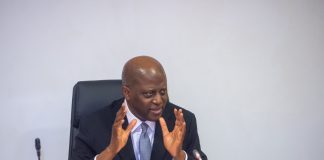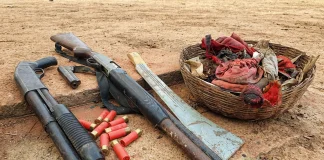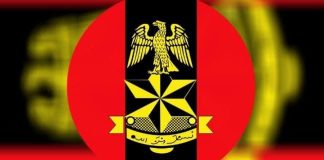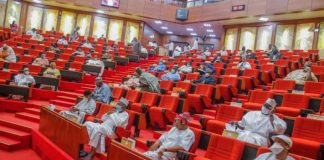🌿 Ruzu Non-Alcoholic Herbal Bitters
Ruzu Non-Alcoholic Herbal Bitters is a natural health supplement specially formulated to:
- ✅ Promote general wellness
- ✅ Detoxify the body
- ✅ Support the treatment of various ailments
Made from a powerful blend of 100% organic and medicinal herbs, Ruzu is completely alcohol-free, making it ideal for:
- 👪 All age groups
- 🌱 Health-conscious individuals
- 🌿 Anyone seeking non-alcoholic herbal remedies
Whether you're looking to boost your vitality, cleanse your system, or support healing the natural way, Ruzu Bitters offers a trusted herbal solution.
The Northern Nigeria Economic Development Council, or NNEDC, was established yesterday by the Northern Elders Forum (NEF) as a new coordinating organization to promote industrialization, draw in investment, and harmonize development policies throughout the northern area.
After the Northern Nigeria Investment and Industrialization Summit (NNIIS) concluded successfully in Abuja, where attendees committed to more than $10 billion in new investments in the mining, agriculture, and power sectors, the announcement was made.
NNEDC will be the institutional framework for implementing a Northern Nigeria Economic Development Masterplan, with a focus on security, policy coherence, and private capital as pillars for the region’s economic transformation, according to a communiqué signed by Prof. Ango Abdullahi, Chairman of the NEF Board of Trustees.
Officials from the Federal Government, northern governors, the NNDC, leaders of the private sector, development partners, financiers, academics, and representatives of civil society were among the many stakeholders who attended the two-day summit with the theme “Unlocking Strategic Opportunities in Mining, Agriculture, and Power (MAP 2025).”
According to him, the summit also included Deal Room/Matchmaking (B2B, B2G) sessions and displays of investment opportunities by the 19 Northern Nigerian States’ Investment Promotion Agencies and Corporate Sponsors. Over $10 billion in major investments were promised over the following five years in the areas of mining, agriculture, and power.
There were also delegations from Bangladesh, South Africa, India, Canada, Saudi Arabia, and Turkey, who said they were willing to spend billions of dollars in the growing industries in the region.
The summit included masterclasses, panel discussions, high-level speeches, and strategic displays examining the mining, agriculture, and power sectors’ strengths, obstacles, and investment prospects.
President Bola Tinubu, through Minister of Finance and Coordinating Minister of the Economy Mr. Wale Edun, opened the summit by reaffirming the federal government’s commitment to restoring the economy of Northern Nigeria through institutional capital mobilization and partnership.
The President’s support was acknowledged by NEF, which also promised to hold the President accountable for fulfilling this national commitment.
North West, North East, and North Central governors pledged their states to a single regional economic vision by signing the Northern Nigeria Economic Development Charter during the occasion.
The Northern Nigeria Economic Development Masterplan (NNEDM) will be implemented in coordination by the newly established NNEDC, which will function under the joint supervision of NEF and the Northern Nigeria Governors’ Forum (NNGF).
Transitional measures will be supervised by a Joint Implementation and Monitoring Taskforce (JIMT), which will also release an operational roadmap in 60 days. Every quarter, the NNEDC will release scorecards to monitor quantifiable results including the creation of jobs, the expansion of energy capacity, and the mobilization of investments.
Speaking as well, NEF Director-General Prof. D.D. Sheni stated the occasion represented “a decisive pivot from rhetoric to execution” in the development of Northern Nigeria.
According to him, Northern Nigeria can turn its resources into sustainable growth if security serves as the cornerstone, policy coherence as the framework, and private capital as the catalyst.
As it guides the area into a new era of concerted economic transformation, NEF pledged once more to uphold transparency, accountability, and inclusive prosperity.
“There are significant deposits across states (such as granite, tantalite, copper, lithium, and gold,” he continued. Potential for mineral-based industrialization and local processing; ecosystems of regional suppliers.
Risks of social unrest, environmental damage, and illegal mining exist in the absence of robust ESG protections. Insufficient mineral resource data.
“Requirements include clear royalties, community involvement, dispute resolution, E&S compliance, and reliable, consistent permitting.” Reforming mining and the control of mineral resource development is necessary.
The financing of generation, transmission, distribution, and off-grid/mini-grid solutions was emphasized by the participants through the mobilization of capital-market instruments, such as infrastructure funds, sukuk/green bonds, and project bonds.
Use model contracts and standardized PPP frameworks with open risk allocation and procurement to speed up the construction of infrastructure.
Reforms in land administration (digitized cadastre, unambiguous titling, time-bound consent) should be institutionalized along with Community Benefit Agreements and grievance procedures.
Use DFIs, pension funds, sovereign and diaspora money, and create blended-finance vehicles and thematic instruments (green, sukuk, infrastructure, and project bonds) to launch a capital mobilization program in Northern Nigeria.

